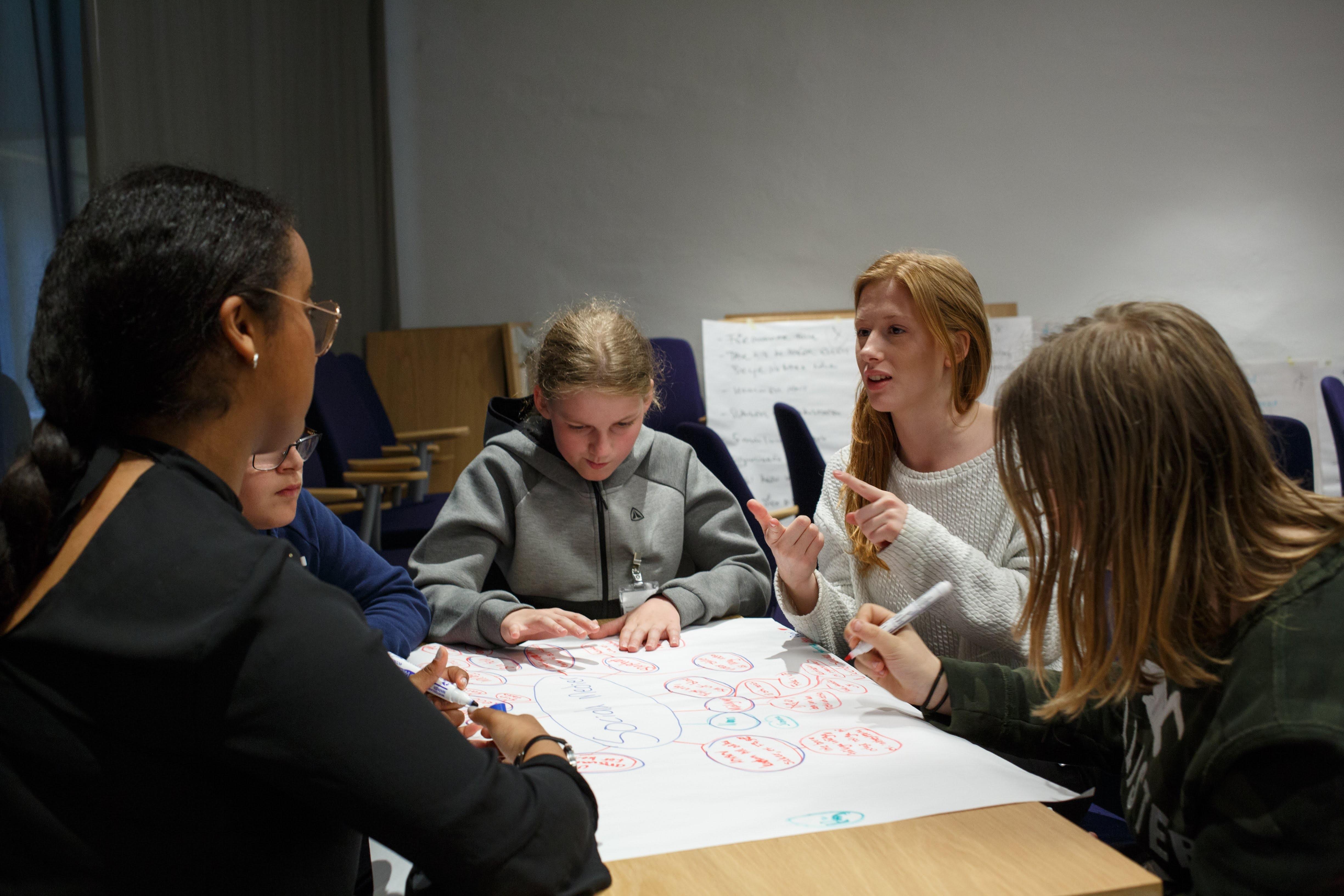There are many reasons for people becoming teachers.
You may have embarked on teacher training because you love working with young children. You might have been someone who is fascinated at the way that they think and wanted to help them make sense of the world that they live in. Maybe you simply loved the idea of teaching and sharing knowledge or, to be more politically correct, facilitating learning.
No matter what your motivation was, you, in all probability, did not realise at the time that a lot of your time and energy would be spent managing the behaviour of your students.
In spite of all the hours spent doing admin – planning, doing prep, marking, drafting question papers – it is classroom behaviour management which many teachers find the most taxing. Managing the behaviour of learners in the classroom isn’t just about praise and punishment.
There is far more to classroom management approaches than simply handling difficult kids and their moods and tantrums. It is about having strategies for dealing with challenging behaviour in the classroom in such a way that the children’s opportunity to learn is maximised and they can taste success and growth.
The days of the teacher standing in front of a classroom and ‘keeping control’ are long gone. Today’s classroom management approaches are far more inclusive and give children a sense of ownership and shared responsibility. Approaches today encourage curiosity and co-operative learning which lead to greater interaction amongst the children. Managing this successfully will have you and your learners being happier than if you had followed the same old system to which you and, possibly, your parents had been exposed.
Teachers Need Behaviour Management Techniques that are Effective
For any learning to take place in a classroom, there has to be a sense of order and calm. Today, we have progressed to the point where we know that we need to plan to get the learners, in our care, to co-operate if any real learning is to take place. Thus, strategies for dealing with challenging behaviour in the classroom, are essential elements in a successful teacher’s toolkit.
This again underscores the importance of every educator – private tutor or school teacher - having a solid classroom behaviour management plan. For the children to learn and, later, to achieve, there are several elements which have to be present in the classroom: mutual respect between teacher and learners, appropriate behaviour and an effective management plan and good behaviour management skills.
Even a private tutor will benefit from having a good behaviour management plan in place, because he or she will not only be imparting on content knowledge of a particular subject. The young person will also be honing his or her social-emotional skills, respecting the social contract and nurturing his or her own curiosity and interests.
At the end of the day, these are the elements that behaviour management should foster – not merely enforcing the ‘shut up and listen’ command!
Want to give private lessons?
Join the Superprof community and share your knowledge with inquiring and motivated students.
Classroom Management Approaches to Reshape Your Life as a Teacher
We’re not talking about classroom discipline here!
What we’re talking about is putting together and enabling a learning environment that is stimulated by curiosity, respect between teacher and learners and by willing learner engagement. These are the elements, rather than discipline, that encourage the act of learning in the classroom.
Here are some pointers to help you develop such an enabling learning environment.

Allow Learners to Help Decide on the Rules
Within the context of a school, it is vitally important for there to be a set of rules. To develop a set of class rules that the children respect, understand and identify with, it would be beneficial if the kids had a hand in designing the rules themselves.
Enquiring from your learners what they believe to be appropriate classroom behaviour is a great way to start out at the beginning of the school year. Talk to your class about this and guide the learners towards considering fair, appropriate sanctions (consequences) for learners who do not abide by the rules.
For the children, this may be a fun conversation, but the important point is that they have been drawn in to help draft the set of rules that will govern their behaviour – signifying that they have already taken ownership for the end result.
Don’t You Forget the Rules
Once the rules have been agreed upon by the class, you must remember what rules were agreed upon. Too often teachers forget what was decided on or apply the rules inconsistently. This can serve to break down the morale of the learners who behave well and may cause behaviour to deteriorate in your classroom.
Your being consistent, where the application of rules is concerned, is going to be crucial, in terms of managing your class. It prepares children for what they can expect in your classroom – and, as a result, the learners agree to conform.
A great idea would be to make a big deal of the finalisation of your agreed-upon classroom rules by having them sign a pledge.
Post this up where everyone can see it – this will serve as a visual reminder of their promise!
Remind Them of Their Responsibilities
Good or acceptable classroom behaviour is not simply about sitting quietly and responding to the questions which you pose. They have responsibilities towards their classmates too.
Reminding them of this regularly would go a long way towards creating a harmonious working environment.
If responsibility is passed on to learners, it gives them a stake in the management and upkeep of the classroom – and they will also feel a sense of pride with being entrusted with such tasks.
Also, it takes some pressure off the teacher: you won’t be responsible for doing everything in the classroom and you will realise that your learners do not actually expect that!

Tasks and Topics Should be Open-Ended
Children are born eager to learn. Curious by nature, you can’t keep them from exploring as they try to comprehend their environment. Everything is a wonder. Karen Stephens
It is, therefore, vital that curiosity is encouraged since it is important for the child’s self-growth, individuality, interests and critical skills which will come into play in later life. Allowing children to explore their curiosity is a key part of behaviour management too, because when children are exploring things that interest them, they will be less likely to misbehave.
A wonderful way to develop curiosity is to set tasks that are open-ended, directed at the students and caters to the children’s sense of curiosity, creativity and their interests. The activities do not always have to be governed the strict confines of the curriculum since, the greatest learning sometimes is the search!
Encourage Your Learners to Acquire Their Own Interests
Learners, just like tutors and teachers, can feel quite limited and restricted by the demands of their lesson plans and the curriculum. So, even if the requirement is for them to learn a particular set of facts, they can be granted the opportunity to uncover them, along with their classmates, in a way that develops their own interests.
So, whether they’re involved in a research project at home or case study, giving children the opportunity to follow their own interests demonstrates to them that their interests are valued and important – while they may also be of interest and informative to their classmates!
Be a First-Rate Role Model
If you expect your learners to behave, then it would be useful for you to abide by the agreed-upon rules too: if you expect them to be punctual, then you must ensure that you’re on time, all the time! Or, if you want homework handed in on a particular day, grade it by the date which you have stipulated!
Kids have a keen sense of unfairness and injustice. It is, therefore, unfair for you to expect something of them, but the rule doesn’t apply to everyone, including the teacher!
What is spoken about above, boils down to being a good role model and, while the above may be what everyone expects of teachers, not all are such positive examples to the youngsters in our care.
Foster Mutual Respect
It’s great if your learners respect you. It’s even better if they respect one another as well! If you can develop an environment within which all participants listen to one another, you would have achieved one of the fundamental goals of good classroom management.
This trumps an environment within which learners only listen to you and obey you. Rather, a wonderful way to encourage learners to get to know one another, is to find ways that will effectively encourage respect and co-operation among all learners

Nurture Good Interaction With Parents
Although this does not occur in the classroom, the actions and attitudes of your learners’ parents has a major impact on the behaviour of the learners in your classroom.
Get the parents on your side and make sure that they stay there. One way to do that is to report excellent work and behaviour regularly, making sure that the information which flows from the classroom is positive – not only negative.
Watch How You Respond to Situations
At the end of the day, classroom management is not only about how the learners behave. They will be watching how you respond in trying situations too!
Try never to lose your cool! The way you react will be indelibly imprinted on them – this may well be how they will remember you.
Bite your tongue. Turn to the set of agreed-upon rules to provide effective strategies for dealing with challenging behaviour in the classroom.
Be the referee. Don’t take the misbehaviour personally, let the rules take their course!
Want to give private lessons?
Join the Superprof community and share your knowledge with inquiring and motivated students.
Want to give private lessons?
Join the Superprof community and share your knowledge with inquiring and motivated students.
Summarise with AI:





